Nowhere do Flaubert's explorations of the relation of signs to the objects they signify reach a more thorough study than in this work. Bouvard and Pécuchet systematically confuse signs and symbols with reality, an assumption that causes them much suffering, as it does for Emma Bovary and Frédéric Moreau. Yet here, due to the explicit focus on books and knowledge, Flaubert's ideas reach a climax. Consequently, the book is widely read as a precursor to modern theories on semiotics and postmodernism. The relentless failure of Bouvard and Pécuchet to learn anything from their adventures raises the question of what is knowable. Whenever they achieve some small measure of success (a rare occurrence), it is the result of unknown external forces beyond their comprehension. In this sense, they strongly resemble Antony in The Temptation of St. Anthony, a work which addresses similar epistemological themes as they relate to classical literature. Lionel Trilling wrote that the novel expresses a belief in the alienation of human thought from human experience. The worldview that emerges from the work, one of human beings proceeding relentlessly forward without comprehending the results of their actions or the processes of the world around them, does not seem an optimistic one. But given that Bouvard and Pécuchet do gain some comprehension of humanity's ignorant state (as demonstrated by their composition of the Dictionary of Received Ideas), it could be argued that Flaubert allows for the possibility of relative enlightenment.
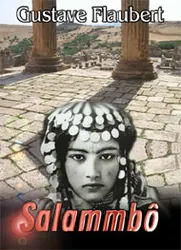
Salammbô
Gustave Flaubert
audiobookbook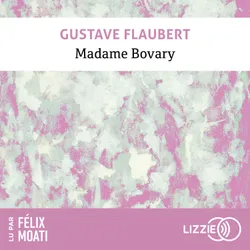
Madame Bovary
Gustave Flaubert
audiobookbook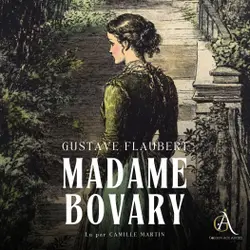
Madame Bovary - Livre Audio
Gustave Flaubert, Livres audio en français
audiobook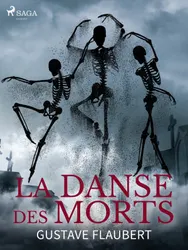
La Danse des Morts
Gustave Flaubert
book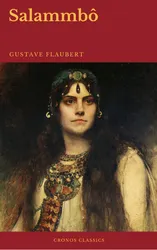
Salammbô (Cronos Classics)
Gustave Flaubert, Cronos Classics
book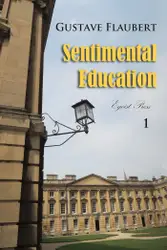
Sentimental Education, Volume 1
Gustave Flaubert
book
La légende de Saint Julien l'Hospitalier : Enregistrement historique de 1946
Gustave Flaubert
audiobook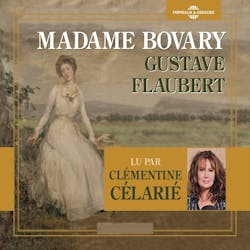
Madame Bovary
Gustave Flaubert
audiobookbook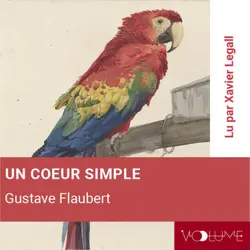
Un coeur simple
Gustave Flaubert
audiobookbook
50 Masterpieces You Must Read Before You Die: Volume 2 : Timeless Classics That Will Enrich Your Mind and Soul
Louisa May Alcott, Jane Austen, Joseph Conrad, D. H. Lawrence, George Eliot, Leo Tolstoy, James Joyce, Charles Dickens, Bram Stoker, Oscar Wilde, Honoré de Balzac, Edgar Rice Burroughs, Anne Brontë, Charlotte Brontë, Emily Brontë, Lewis Carroll, Willa Cather, Miguel de Cervantes, E. E. Cummings, Fyodor Dostoyevsky, Daniel Defoe, Arthur Conan Doyle, Alexandre Dumas, Gustave Flaubert, Henry James, Victor Hugo, The griffin classics
book
Drei Geschichten von Gustave Flaubert : Ein schlichtes Herz – Die Legende von Sankt Julian dem Gastfreien – Herodias
Gustave Flaubert
audiobook
100 Obras Maestras de la Literatura Universal
Johann Wolfgang Goethe, Gustave Flaubert, Franz Kafka, Lewis Carroll, Sigmund Freud, Henrik Ibsen, Charles Dickens, Honoré de Balzac, Mark Twain, Immanuel Kant, Friedrich Schiller, Harriet Beecher Stowe, Oscar Wilde, Robert Louis Stevenson, Edgar Allan Poe, William Shakespeare, Dante Alighieri, Giovanni Boccaccio, Bram Stoker, Charlotte Brontë, Emily Brontë, Jack London, Henry James, Louisa May Alcott, Victor Hugo, Arthur Conan Doyle, Joseph Conrad, Jane Austen, José Rizal, Edgar Rice Burroughs, Herman Melville, Jonathan Swift, Gustavo Adolfo Bécquer, Vicente Blasco Ibáñez, Benito Pérez Galdós, Jean-Jacques Rousseau, Daniel Defoe, Pedro Calderón de la Barca, Virginia Woolf, Washington Irving, Juan Valera, Horacio Quiroga, Nathaniel Hawthorne, Charles Baudelaire, Wilkie Collins, William Makepeace Thackeray, Voltaire, Apuleius, Leopoldo Alas, John Milton, José Martí, Lope de Vega, Emilio Salgari, Francisco de Quevedo, Rubén Darío, Antonio Machado, José Zorrilla, Tirso de Molina, Emilia Pardo Bazán, Fernando de Rojas, L. Frank Baum, H. G. Wells, J. M. Barrie, H. Rider Haggard, H. P. Lovecraft, Seneca, Hans Christian Andersen, Friedrich Nietzsche, Mary Shelley, Baltasar Gracián, Sófocles, Sun Tzu, Fiódor Dostoyevski, Antón Chéjov, León Tolstoi, Tomás Moro, San Agustín, Nikolái Gógol, Julio Verne, Homero, Platón, Alejandro Dumas, Aristóteles, Hermanos Grimm, Jorge Isaacs, Ignacio de Loyola, Nicolás Maquiavelo, Miguel Cervantes, Teresa de Jesús, Alejandro Dumas hijo, Mijaíl Bakunin, Miguel De Unamuno, Duque de Rivas, Ramón María del Valle-Inclán, Federico García Lorca, Gibrán Jalil Gibrán
book
